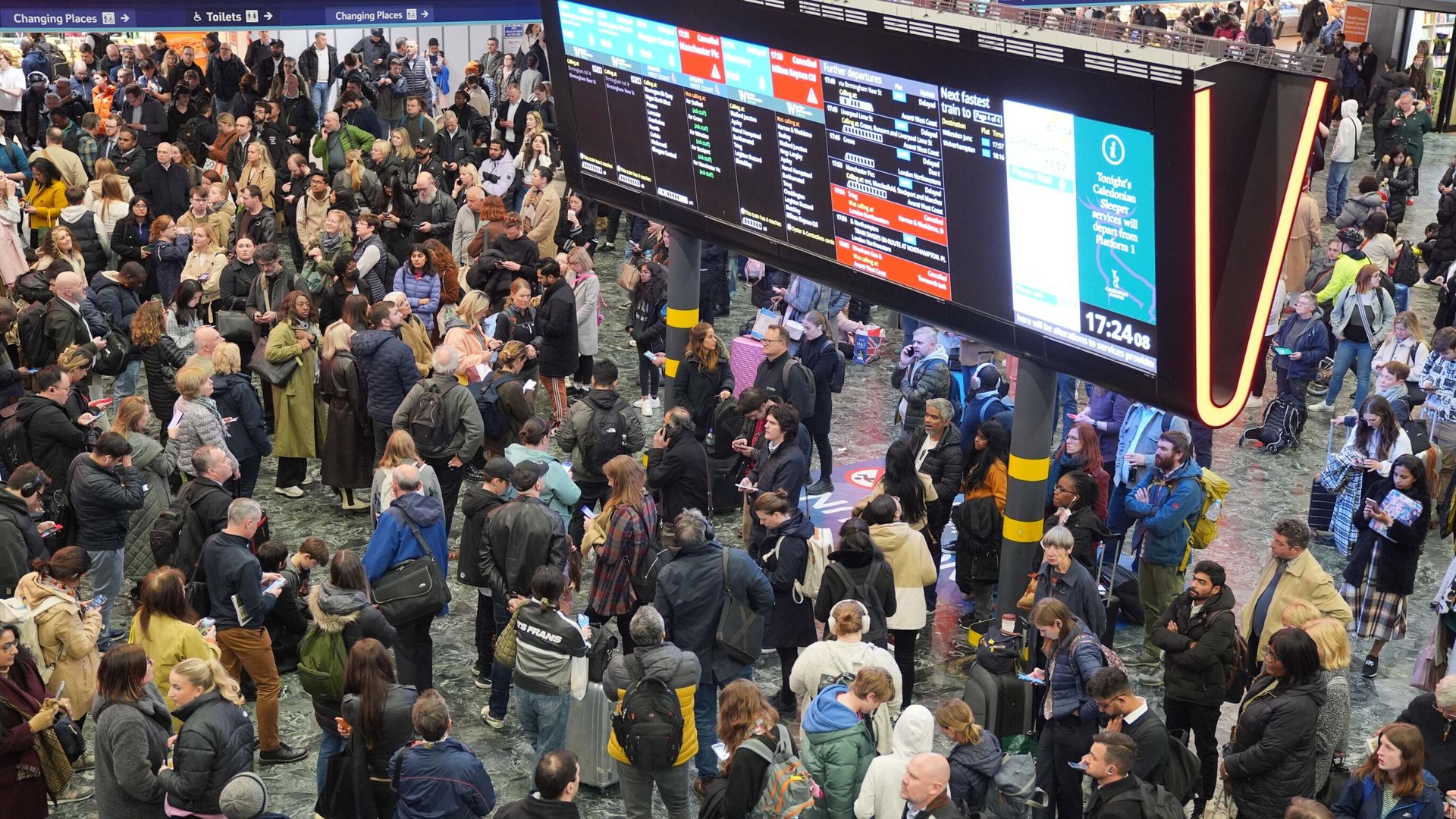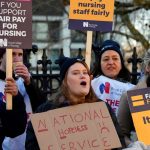Train passengers have lost nearly one million minutes to delays caused by signal failures in the past five years.
A total of 988,419 minutes of delays across England, Scotland and Wales since the 2018-19 financial year have been due to signal failures, Network Rail data shows.
The data was published after the Liberal Democrats submitted a Freedom of Information request to the company.
The party is calling for a freeze on rail fares due to poor service.
So far this financial year, which began in April, there have been more than 1,000 signal failures on journeys, with passengers having spent nearly 40,000 minutes waiting, the data shows.
In the last financial year, there were delays of nearly 190,000 minutes due to faulty signals.
The Network Rail data shows more than 36,000 signal failures since 2018-19, leading to nearly 15,000 journey cancellations – 10,078 partial cancellations and 4,266 full cancellations.
Lib Dem transport spokeswoman, MP Wera Hobhouse said: “Passengers have put up with years of unacceptable delays and extortionate rail fares. They are forced to pay through the nose for a service that they cannot rely on.
“These damning figures lay bare the state of neglect that the Conservative Party left our railways in, leaving passengers to pay the price.
“With thousands of signal failures, it is clear that our rail infrastructure is not delivering for passengers who rely on these services just to go about their everyday lives.
“That is why it’s time to put passengers first and ensure services run smoothly so they no longer have to suffer these damaging delays. Passengers should also not be forced to pay more for a service that is simply not working which is why we need an immediate freeze on rail fares.”
Read more:
Escaped tortoise causes train delays
Calls for water firms to be punished for breaching sewage permits
Railway signals are traffic lights that tell a train driver if it is safe to proceed.
They are essential to ensure trains are spaced out safely, with signals at the beginning of each section of track to ensure only one train is on that track.
Signals can break, causing a train to be held up at a red signal even when there is no train in the section. If a train remains stationary due to a red signal, this quickly creates knock-on delays.
Common causes of signalling failures are problems with track circuits – small currents running between the tracks and trains – and axle counters – which count the axles and track wheels going in and out of a section.
These can cause further delays as they have to be independently investigated to ensure the root cause is addressed.
Flooding can cause the track circuit to think there is a train there when there is not so turns the signal red.
Heat can cause axle counters to lose power supply then fail to detect trains when they come back on, which requires a manual reset which takes time.
Failure by track points, the moveable part of rail that enables trains to switch between tracks, also causes signal failures.
Cable theft to sell for scrap causes signalling delays as well, with copper cable theft costing Network Rail millions a year.
A Network Rail spokesman said: “Passengers want and deserve a safe and reliable railway. Together, the rail industry is determined to run a better railway, reducing delays and cancellations and providing a service that can be relied upon.”
Passengers delayed due to signalling or points issues get a full or partial refund from the train operator, who are, in turn, compensated by Network Rail for delays caused by their network.
Labour have promised to re-nationalise all passenger rail services when existing private contracts come to an end.
Privately owned operators such as Thameslink, Great Western Railway, East Midlands Railway and Avanti West Coast would gradually be brought into public ownership.
Keep up with all the latest news from the UK and around the world by following Sky News
Be the first to get Breaking News
Install the Sky News app for free
Transport Secretary Louise Haigh has proposed a single company to run both rail infrastructure and trains in the long term.
At the moment, they are split between Network Rail – which is publicly owned – looking after the tracks, wires and signals, and multiple companies running the trains.
Most stations are owned by Network Rail but run by the train company serving them, but Network Rail operates 20 stations directly, including most London rail stations, and some in other major cities.
Sky News has contacted the Conservative Party for a response.






















